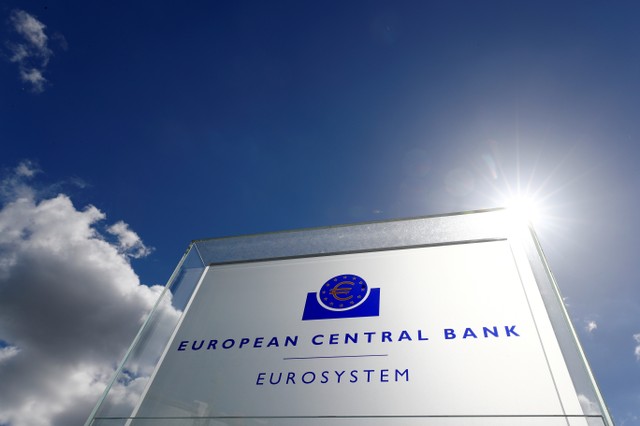Eurozone inflation falls unexpectedly in May; more ECB support may come

Inflation in the 19 countries sharing the euro fell more than expected last month, adding to worries about weak price pressure and reinforcing the case for more stimulus by the European Central Bank. With growth slowing as a global trade war heats up, major central banks appear to have given up plans to tighten policy and investors now expect them to provide even more stimulus.
The eurozone inflation fell to 1.2% in May from 1.7% in April, below expectations of 1.3% and more than reversing a one-off surge related to the timing of Easter. In a more worrisome sign, the ECB's preferred measure, underlying inflation -- excluding volatile food and energy prices -- fell to 1.0% from 1.4% a month earlier, indicating that a long-projected pick-up has still not begun.
With the data suggesting more ECB support may be coming, bond yields dropped further on Tuesday, moving towards record or multi-year lows. The 10-year Germany bond fell to minus 0.21%, within sight of Monday's record low. The 30-year French bond fell about four basis points to 1.19%, its lowest since late 2016.
Bank shares rose, partly on expectations the ECB would need to give the euro zone economy a boost and provide banks with cheap funding. The ECB targets inflation at just below 2%, but it has undershot that since 2013, raising fears that such a persistent miss could permanently lower inflation expectations, making weak price growth self-perpetuating.
Minutes of the ECB's last meeting showed growing concern about weakening inflation expectations, which raises pressure on policymakers to provide further stimulus. But the bank has already exhausted much of its firepower. Although it has plenty of tools left, they lack the potency of earlier measures, such as massive asset purchases or rapid rate cuts.
The ECB's next move, expected at Thursday's meeting, will be to provide banks with new longer-term refinancing operations or TLTROs, -- loans at super low, probably negative interest rates. "Today’s drop in core inflation ... will only add to the case for a dovish outcome while our measures of inflation expectations continue to drift lower," Pictet Wealth Management strategist Frederik Ducrozet said. "We expect TLTRO to be priced at a negative rate of -0.20%, or lower."
Lending data suggests the availability of funding is not an issue for now, but the weak inflation reading and slowing growth are likely to persuade policymakers to price the loans under generous terms. But the ECB may hold off on other easing measures for now. Growth is holding up, wages are rising, credit growth remains robust and unemployment reached a 10-year-low of 7.6% in April.
Still, more support may be needed before summer is over. A trade war is sapping confidence, Italy is again quarreling with the European Commission, German industry continues to post dismal figures, stocks are tumbling and the threat of a hard Brexit looms. Markets have already pushed out expectations for a rate increase into 2021 and some are even pricing in a rate cut. That move is still unlikely, since the ECB's key rate is already at a record low of minus 0.4%. To maintain credibility, the ECB's next move then may be to adjust its forward guidance and formally delay any rate increase. It now foresees steady rates until next year.
(With inputs from agencies.)
- READ MORE ON:
- European Central Bank
- Central bank
- European Parliament
- IPCC Summary for Policymakers
- Monetary policy
- Climate change
- East Germany
- Nazi Germany
- West Germany
- French conjugation
- French drain
- French Revolution
- Flag of Italy
- The Voice of Italy
- Southern Italy
- European Commission
- Electoral Commission
- investors
- policymakers
- TLTROs
ALSO READ
Germany denies accusations of aiding 'genocide' in Gaza at ICJ
Father in Germany sentenced for injecting mercury into daughter's foot, convicted of attempted murder
Germany's Lufthansa suspends flights to and from Tehran amid Middle East Crisis
Germany's Lufthansa suspends flights to and from Tehran amid Middle East Crisis
Germany's Lufthansa suspends flights to and from Tehran amid Middle East crisis










